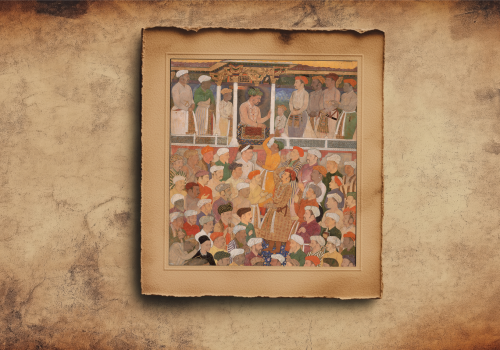The territories which fell to the Maharaja`s arms were generally farmed out to individuals who were always in arrears with their payments. Devi Das settled the amount of the deohri fees in each district, and kardars, revenue officers, were made responsible for having them deposited into government treasuries through the deohridars. He also established a rudimentary Sarishta`iHazur where records of all major financial transactions were kept; to it was attached a Naqal Daftar or copying office.
All vouchers of expenditure and pay orders were scrutinized by him for approval and sanction by the Maharaja. As the mfrmunshi of the Maharaja, Devi Das read out to him reports from various parts of the kingdom, and wrote out royal orders to the chiefs and kardars. He kept ready money for State expenditure and royal charities. In 1819, when Kashmir was conquered, Devi Das was sent there for the settlement of the country. DevJ Das died at Lahore in 1830.
References :
1. Suri, Sohan Lal, `Umdat-ut-Twarikh. Lahore, 1885-89
2. Griffin, Lepel and C.F. Massy, Chiefs and Families of Note in the Punjab. Lahore, 1909
3. Garrett, H.L.O. and G.L. Chopra, eds.. Events at the Court of Ranjit Singh 1810-1817. Delhi, 1986
4. Hasrat, B.J., Life and Times of Ranjit Singh. Nabha, 1977


